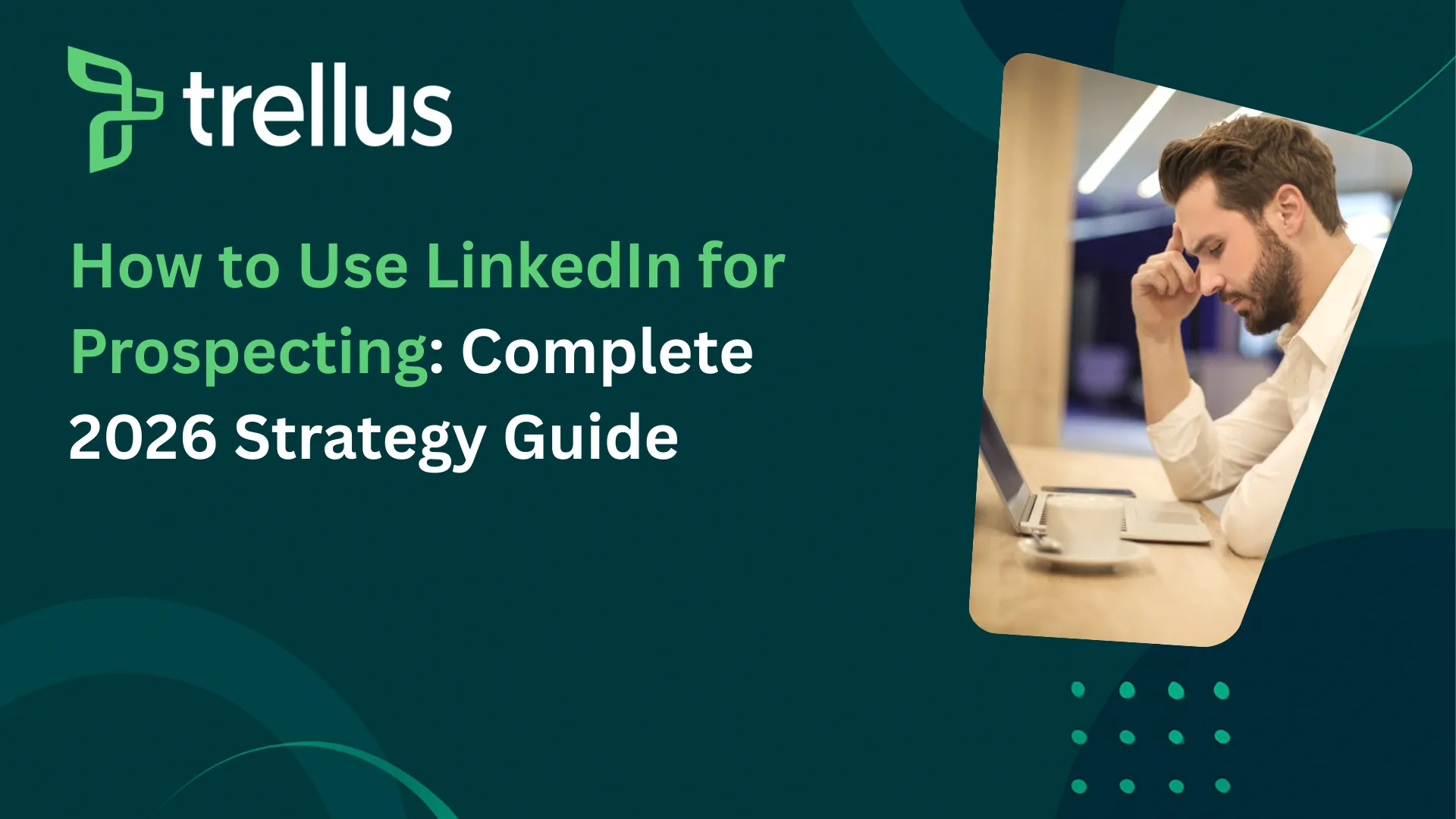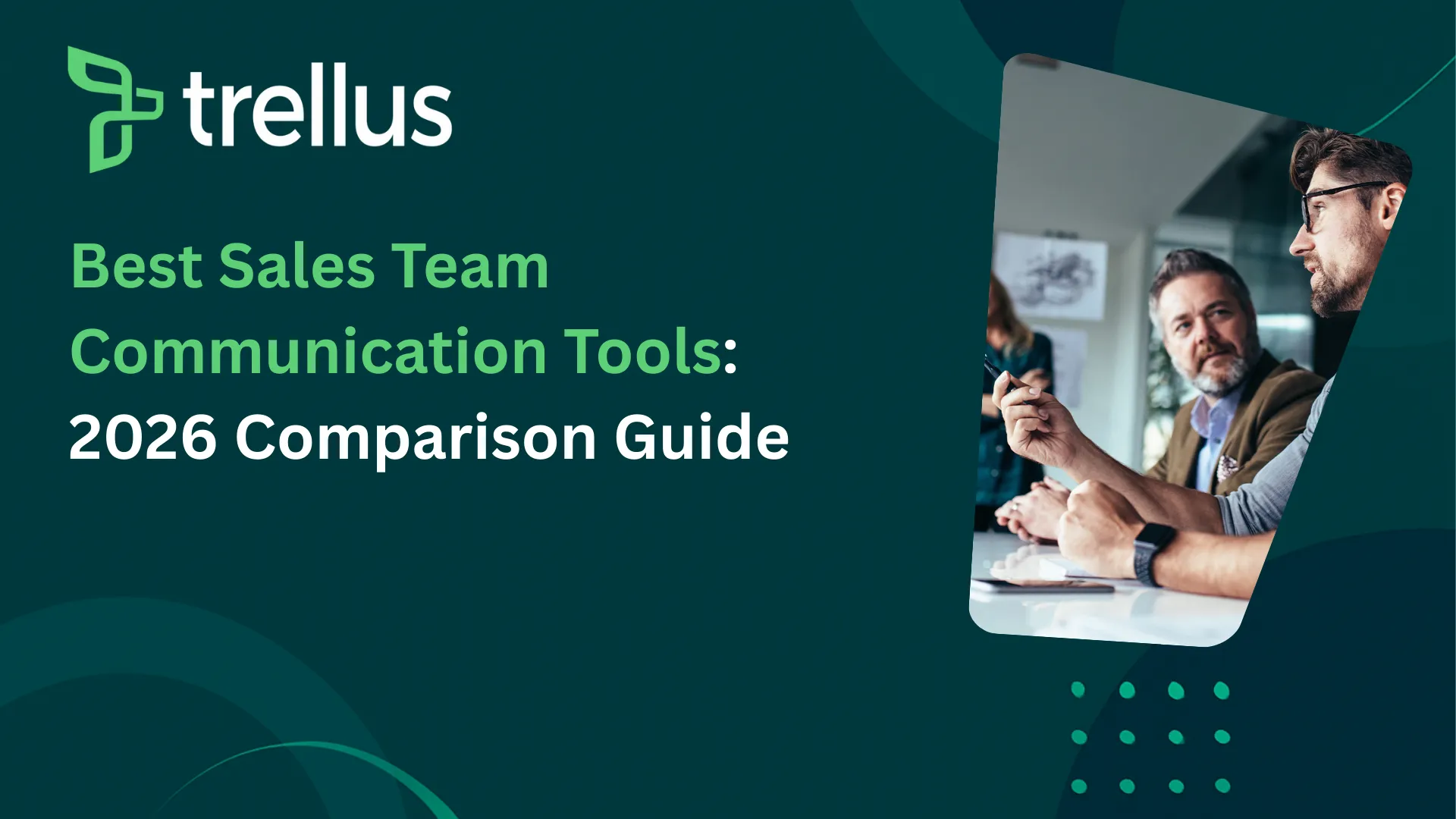
Our Top Picks


Sales teams are always on the crunch for pushing towards excellence in terms of conversions, ultimately affecting business scalability reports.
The theory is widely applicable in the case of those businesses that deal with both inbound and outbound sales experiences on an ongoing basis.
So, from that point of view, between shifting buyer behaviors, crowded markets, and rising expectations around personalization and value delivery, the demand for better-trained, sharper, and more confident sales reps is at an all-time high.
Especially in fast-paced environments that revolve around outbound prospecting, cold outreach, warm follow-ups, and inbound sales support, the margin for error is slim.
Traditional training frameworks struggle to keep pace with the demands of modern selling.
Time-intensive roleplay exercises with peers or managers often feel like outdated relics: hard to schedule, inconsistent in delivery, and limited in scope. The gaps in repetition, feedback quality, and scenario variation reduce training effectiveness and ultimately translate into missed revenue opportunities.
That's where sales role play AI technology has rapidly changed the landscape.
No longer a futuristic promise, AI-driven simulation software now empowers sales teams to rehearse, improve, and master real-world conversations across channels—without waiting for human roleplay partners or trainers.
The best AI sales training role play tools simulate realistic interactions, adapting to user performance and delivering granular feedback on tone, pacing, delivery, and objection handling.
The result?
Sales reps who sound more natural, respond more effectively, and close more deals.
This comprehensive breakdown analyzes the most impactful AI sales role-play solutions on the market today—specifically from the lens of outbound-focused teams who manage high volumes of cold calls, handle warm prospects, and juggle inbound service calls that influence pipeline growth.
These platforms aren’t just intelligent; they’re built for action. And for sales leaders focused on performance, consistency, and skill development at scale, they represent a genuine transformation.
Why AI Sales Training Role Play Software is Replacing Traditional Sales Coaching
Sales managers have always understood the importance of roleplaying.
The ability to rehearse pitches, fine-tune responses, and build confidence through repetition has long been a staple of onboarding and sales enablement.
But the limits of traditional roleplay have always been clear: it depends on availability, consistency, and subjective feedback.
Modern AI sales training role play solutions remove those bottlenecks.
These platforms offer always-on training environments that mimic real prospect conversations with stunning realism. Whether reps are preparing for a tough cold call, practicing discovery frameworks with a warm lead, or handling tricky service requests from inbound callers, they now have a fully responsive AI partner available on demand.
Instead of practicing once a week with a manager, reps can engage in dozens of simulations every day. And unlike human roleplay partners, AI simulators deliver unbiased, consistent feedback across tone, delivery, keyword accuracy, empathy, and more. Sales leaders finally get the visibility they need—while reps improve faster through structured, measurable practice.
Most importantly, these tools are highly adaptable. Teams can build scenarios tailored to their specific industry, audience, or objection set.
Regardless of whether you're a SaaS company targeting enterprise buyers or a healthcare firm managing complex B2B calls, the best AI sales role-play free and premium tools allow custom training journeys that reflect real pipelines.
Features That Matter for Outbound-Focused Teams
For sales leaders managing outbound teams, not every AI simulator is created equal.
Cold calls demand lightning-fast objection handling.
Meanwhile, warm leads require subtle discovery skills and value-based dialogue. Inbound calls test reps’ ability to remain composed under pressure. In that context, the best AI sales role-play platforms must reflect these unique challenges.
What sets the most effective platforms apart?
To start off, we’d say that scenario flexibility is non-negotiable.
Top tools let teams craft simulations across multiple stages of the sales funnel—cold outreach, discovery, product walkthroughs, negotiation, and post-sale relationship management.
Up next, there’s the aspect of voice quality and the human element.
It must mirror reality. Period
At the end of the day, people like to deal with people who can relate with their particular issues.
Robotic, flat simulations break immersion and limit the effectiveness of the training. Leading tools offer AI voice simulations with emotional nuance, timing variations, and reactive dialogue that feels human.
Moreover, feedback and reporting must be actionable. It’s not enough to flag mistakes.
The best platforms break down performance with data: filler word counts, talk ratios, empathy scores, objection resolution tracking, and even conversation flow accuracy. Sales managers can identify patterns across their teams while reps get detailed coaching cues they can immediately apply.
Top AI Sales Roleplay Software Solutions for Real-World Outbound Teams
Here’s a deep breakdown of the leading platforms making waves across outbound sales orgs today.
1. Trellus.AI – Live Coaching Meets Roleplay For a Robust Virtual Sales Floor Experience

Trellus.AI brings a refreshing lightness to the world of sales training.
Instead of a massive, standalone training platform, Trellus offers a nimble Chrome-based solution designed to function within reps’ existing workflows. For outbound teams juggling dozens of calls daily, this simplicity matters.
The program blends sales role play AI with real-time performance coaching. As reps conduct live calls, the system listens in and gently nudges improvements—offering cues when energy drops or objection handling falters. It's like having a coach sitting beside each rep without the intimidation factor.
What makes it powerful is the call replay engine. Teams can revisit previous calls, annotate key moments, and design custom roleplays based on actual scenarios their teams faced. This approach creates training loops grounded in real performance—ideal for outbound sales teams chasing quota.
While its simulation capabilities aren’t as broad as dedicated avatar-based systems right now, Trellus stands out for teams wanting in-the-moment improvements. It's a roleplay assistant, call performance analyst, and cold call coach rolled into one.
2. PitchMonster – Precision Training Through Structured Conversations

PitchMonster isn’t aiming for natural improvisation.
It’s about control, structure, and repeatability. Designed around decision-tree scripting, it enables sales orgs to build highly controlled roleplay environments that ensure messaging consistency.
Each roleplay is based on a predefined flow. Reps must respond with accurate messaging and navigate branching responses designed to mimic prospect behavior. While the interaction lacks spontaneity, the structure is a major advantage for new reps, highly regulated industries, or orgs focused on certification-based learning.
PitchMonster excels in AI sales role-play via text channels too.
Sales teams can simulate LinkedIn outreach, email follow-ups, or chat support responses. This helps build multichannel muscle memory—essential for hybrid selling models.
It’s a go-to solution for compliance-focused teams, onboarding programs, and industries where every word must align with strict messaging guidelines.
3. TrainHQ – Flexible Roleplay, Built for Customization

Up next, we’ve got TrainHQ.
This platform offers something few others do: full customization with no upfront constraints. Instead of locking teams into rigid training sequences, TrainHQ allows managers to build and deploy custom scenarios at will. From cold intros to layered negotiation simulations, every interaction is shaped around your process.
They recently added an impressive feature: real-call scoring.
Managers can upload recorded calls, and the platform will provide breakdowns on rep performance. While the analytics engine is still evolving, it signals the platform’s push toward more integrated coaching environments.
The focus is on relevance. Rather than mastering pre-written scripts, reps practice against scenarios they’re actually facing in the field. For outbound teams trying to win over skeptical prospects or book meetings in tough markets, this direct alignment matters.
If your sales process is unique and dynamic, TrainHQ offers the canvas to build simulations that mirror your funnel perfectly.
4. Quantified – When Realism and Compliance Are Top Priority

Quantified brings cinematic realism to AI training. With facially expressive avatars, emotionally nuanced speech synthesis, and deep scenario logic, it creates the closest thing to an in-person simulation you can get.
Built for industries where message discipline and compliance are critical—think pharma, finance, or legal-tech—Quantified doesn’t cut corners.
Every simulation is designed for precision and consistency. That means training conversations look, sound, and feel like the high-stakes deals reps will face.
It’s not just about lifelike AI avatars. Quantified also measures everything: objection resolution, compliance script accuracy, emotional tone shifts, and hesitation patterns. The analytics here are enterprise-grade.
For sales leaders seeking mastery, consistency, and impeccable preparation, this is the gold standard of AI sales training role play technology.
5. Luster – Predictive Coaching Meets Skill Building

Luster is geared toward identifying and closing skill gaps—before they show up in lost deals. Through a combination of simulations and predictive models, the platform forecasts where reps might struggle in actual sales conversations.
Its training modules are fast, focused, and gamified—making it easy for reps to stay engaged. Reps might face a 3-minute drill on handling pricing pushback or a simulated cold open with randomized objections.
The core of Luster is the performance dashboard. Managers can spot patterns across their team: who’s struggling with urgency-building, who needs work on tonality, who’s consistently missing rapport cues. It becomes a central coaching compass for outbound teams.
While its AI voice realism lags slightly behind other leaders, the proactive training philosophy makes it a strong choice for organizations wanting to sharpen the edge before the battle begins.
6. Nooks – The Cold Call Specialist with Real-World Grit

Finally, we’ve got Nooks on the list.
Compared to Orum, Gong and Chorus, this platform is well known among worldwide outbound teams who live and breathe cold outreach.
Its parallel dialer is already popular, alongside bit of an ai roleplay technology that’s built into the system.
Reps are placed in high-pressure outbound scenarios where they must respond to objections quickly, reframe value effectively, and win the right to continue the call. The simulator mimics real dialer experience—right down to pauses, disconnections, and gruff gatekeepers.
Customization is limited compared to broader roleplay suites, but for cold call-intensive orgs looking to boost conversion, few tools sharpen improvisation faster.
If the majority of your reps’ day is spent battling through voicemails and handling live objections, Nooks is a natural fit.
Matching the Right Tool to the Right Outbound Motion
No single platform is alike in terms of competition, and more so in terms of comparative analysis.
The right AI sales training role play software depends on the composition of your sales team, the complexity of your product, the demands of your industry, and your training philosophy.
Trellus is built for active coaching in fast-moving teams. Meanwhile, platforms such as PitchMonster provide structure and script alignment. For teams and businesses on a low-end price tier, TrainHQ is the go-to sandbox for custom process-driven simulations. Quantified delivers the most realistic simulation for regulated, high-stakes environments. Luster focuses on proactive coaching and skill drills.
All of the aforementioned solutions, however, demonstrate one clear trend: sales role play AI is no longer optional. Teams that train consistently in controlled, intelligent environments outperform those that rely on outdated, irregular coaching.
That edge isn’t theoretical. It’s already happening.







